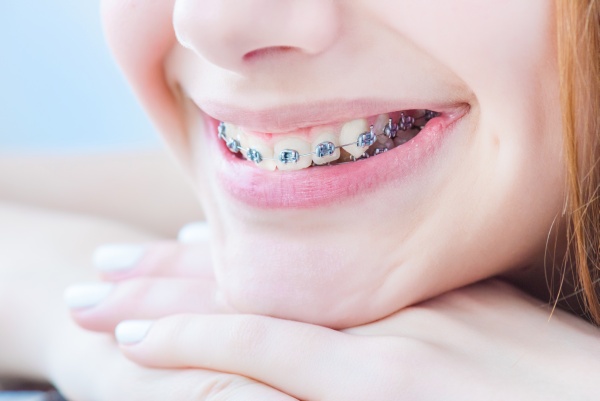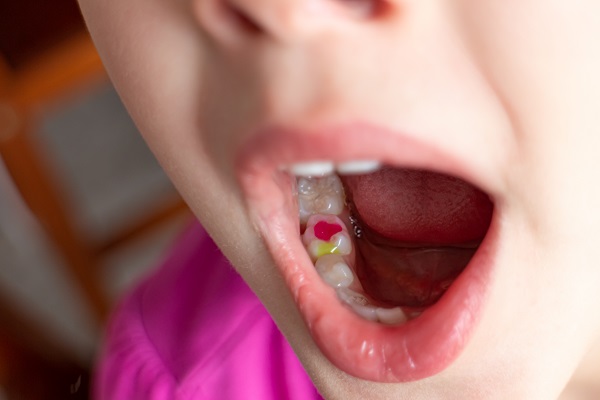4 Bite Complications That Orthodontic Treatment Can Fix

Learning more about orthodontics is a great idea when you are experiencing any kind of dental problem. One of the more common problems dental patients experience is not having a proper bite, which means their teeth or jaws are not in proper alignment. Bite problems need to be treated in a timely manner, otherwise they can lead to additional dental problems.
About orthodontic treatment
Learning more about orthodontics is a great idea, as this branch of dentistry focuses on moving teeth into their proper position so they can work exactly as they are supposed to. The most common type of orthodontic treatment used to help straighten teeth is braces, of which there are a few different types that those in need can choose from nowadays. The overall goal of orthodontic treatment is to give someone a healthy bite, which is important to their dental health as well as their overall health.
4 bite complications that orthodontic treatment can fix
The list below includes four different types of bite complications that can be treated by using orthodontics:
#1 – Crowding
Many people have crowded teeth, which means that there is simply not enough space in the upper or lower jaw to accommodate all of someone’s teeth. When there is not enough space in the mouth to accommodate all teeth, the teeth will become crooked. In order for a dental professional to make the teeth move into their correct positions, one of the different types of braces available nowadays will be used.
#2 – Underbites and overbites
Both underbites and overbites are considered to be bite complications, even if they are minor. Whenever a dental patient is diagnosed with an underbite or an overbite, they will need to have braces placed on their teeth in order to correct this fairly common dental problem. If it is determined that a patient has a severe underbite or overbite, it may be necessary for them to undergo dental surgery to correct this dental problem.
#3 – Crossbite
A crossbite is a bite complication that means when a dental patient bites down, their upper teeth fit behind their lower teeth. While genetics are often a factor in causing this type of dental problem, it can also be caused by certain habitual behaviors, such as prolonged thumb sucking. This bite problem is often treated by wearing braces, though it can also be treated using an orthodontic palate expander.
#4 – Spacing
This bite problem is the opposite of tooth crowding, as spacing means that there are too many spaces or gaps in between the teeth. While sometimes the problem of having spaces or gaps in one’s mouth will resolve itself, most of the time a dental patient will need to undergo some type of orthodontic treatment in order to close the gaps. The most common type of orthodontic treatment is wearing braces.
Are you currently suffering from a bite complication?
Are orthodontics in your near future? Now that you understand some of the more common bite complications that can be fixed using an orthodontic treatment plan, are you in need of treatment? It really is essential that your bite is a healthy one, which may require you to undergo treatment in order to move your teeth into their proper positions.
Are you considering orthodontics in the Manalapan area? Get more information at https://vsndental.com.
Check out what others are saying about our dental services on Yelp: Orthodontics in Manalapan, NJ.
Recent Posts
A deep dental cleaning is a great way to improve your periodontal health, particularly for patients who have periodontitis (an advanced form of gum disease). The following is a review of when a deep dental cleaning (also called a scaling and root planing) might be recommended. The most notable signs that indicate a need for deep…
tooth fillings offer a simple approach with little to no pain. This dental restoration treatment has long been the standard for restoring and rebuilding teeth damaged by cavities, injury, or minor imperfections such as chips or cracks. When considering different dental restoration options, it is a good idea to get familiar with how each procedure…
Your smile is often one of the first things that other people notice about you. A smile makeover offers an effective way for you to transform it into the one you can proudly show off. This treatment process provides multiple benefits, from correcting minor cosmetic issues to a complete overhaul. Here are five reasons to…
A general dentist is someone who helps individuals maintain a healthy oral cavity, and that includes performing root canal therapy as needed. Root canals are a procedure that often strikes anxiety in individuals because it was once said to be painful; however, that is actually far from true! Modern-day dentistry has allowed for quite the…


